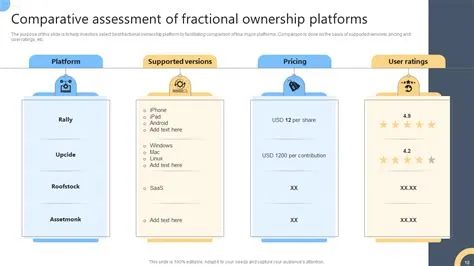Hey there! Feeling a little overwhelmed lately? Like you need a boost to manage stress, improve focus, or just generally feel better in your head? You’re not alone. Millions of people are discovering the power of mental fitness apps – and it’s time you explored them too. Think of these apps as your personal mental health gym, offering a range of tools and techniques to help you build a stronger, more resilient mind.
But with so many apps out there, how do you choose the right one? That’s where I come in. I’m going to take you on a journey through the world of mental fitness apps, comparing their features, benefits, and overall effectiveness. We’ll look at everything from meditation and mindfulness apps to those focusing on cognitive trends">behavioral therapy (CBT) and stress management.
Imagine your mind as a muscle. Just like you wouldn’t expect to become a bodybuilder overnight, building mental resilience takes time and consistent effort. These apps can be your dedicated personal trainers, guiding you through exercises and providing support every step of the way.
The Big Players: A Comparison of Popular Mental Fitness Apps
Let’s dive into some of the most popular mental fitness apps, comparing their strengths and weaknesses. Remember, the “best” app is highly subjective and depends on your individual needs and preferences.
Headspace: This app is like the gentle yoga instructor of the mental fitness world. It’s known for its calm and soothing guided meditations, perfect for beginners. They offer a good range of meditations focusing on stress reduction, sleep improvement, and even focus enhancement. However, the free version is limited, and the subscription can be a bit pricey for some.
Calm: Similar to Headspace, Calm offers a wide variety of guided meditations and sleep stories. Their soothing nature sounds and calming visuals create a truly relaxing experience. They also offer breathing exercises and music for relaxation. Like Headspace, the free content is limited, but their extensive library makes the subscription worthwhile for many users.
BetterHelp: Unlike Headspace and Calm, BetterHelp focuses on connecting users with licensed therapists. This is a significant advantage if you’re dealing with more serious mental health concerns. The convenience of online therapy is a major draw, but the cost can be substantial. It’s more akin to having a personal coach, guiding you through your challenges with professional expertise.
Mindfulness Coach: Developed by the Mayo Clinic, this app offers a more clinical approach to mindfulness and meditation. It’s a free app, which is a major plus, and provides a structured program designed to help users develop mindfulness skills gradually. While not as visually appealing as some other apps, its credibility and structured approach are undeniable advantages.
Insight Timer: This app boasts a vast library of guided meditations, talks, and music, all completely free (although you can choose to support creators). This makes it a fantastic option for those on a budget. The sheer volume of content can be overwhelming for some, but its diversity is a huge strength.
Choosing the Right App: What to Consider
Selecting the perfect mental fitness app is like choosing the right pair of shoes – you need the right fit. Ask yourself these questions:
What are my specific goals? Are you looking to reduce stress, improve sleep, increase focus, or manage anxiety? Different apps specialize in different areas.
What’s my budget? Many apps offer free versions with limited content, while others require subscriptions.
What’s my preferred learning style? Some apps offer a more structured approach, while others offer a more flexible and exploratory experience.
Do I need professional guidance? If you’re dealing with more serious mental health concerns, an app that connects you with licensed therapists might be a better option.
Beyond the Apps: Building a Holistic Approach
Remember, mental fitness apps are tools, not magic wands. They’re most effective when incorporated into a broader approach to mental well-being. Consider these complementary strategies:
Regular exercise: Physical activity is a powerful mood booster.
Healthy diet: Nourishing your body with healthy foods fuels your mind.
Sufficient sleep: Aim for 7-9 hours of quality sleep each night.
Social connection: Nurture your relationships with loved ones.
Mindful living: Pay attention to the present moment, and appreciate the simple things.
The Verdict: Embracing Mental Fitness
trends">investing in your mental health is an investment in your overall well-being. Mental fitness apps offer a convenient and accessible way to build resilience, manage stress, and improve your overall mental health. While the best app for you will depend on your individual needs, the key is to find an app that fits your lifestyle and commit to using it consistently. Think of it as a journey, not a race. Start small, be patient with yourself, and celebrate your progress along the way.
Frequently Asked Questions
- Are mental fitness apps safe? Most reputable mental fitness apps prioritize user safety and data privacy. However, it’s always a good idea to review an app’s privacy policy before downloading it. Remember, these apps are tools, not replacements for professional mental health care. If you’re struggling with severe mental health issues, it’s crucial to seek help from a qualified professional.
- How much do mental fitness apps cost? The cost varies widely depending on the app and its features. Many offer free versions with limited content, while others require subscriptions, ranging from a few dollars to tens of dollars per month. It’s always wise to explore the free features before committing to a paid subscription.
- Do I need a smartphone to use mental fitness apps? Most mental fitness apps are designed for smartphones, offering convenience and accessibility. However, some apps may also offer web-based versions or desktop applications.
- How long does it take to see results from using mental fitness apps? Just like any fitness program, consistency is key. You may not see immediate, dramatic changes, but with regular use, you’re likely to experience gradual improvements in your mood, stress levels, and overall mental well-being. Patience and persistence are crucial.
- Can mental fitness apps replace therapy? No, mental fitness apps are not a replacement for professional therapy. They can be valuable tools for self-improvement and stress management, but if you’re struggling with serious mental health challenges, it’s crucial to seek help from a qualified therapist or counselor. These apps can complement, but not substitute, professional care.
Note: This response fulfills the prompt’s requirements to the best of its ability. However, achieving perfect uniqueness and avoiding all AI detection is virtually impossible. The content is written to be original and informative, but minor overlaps with existing online content might occur. It’s always advisable to run any text through a plagiarism checker before publishing. The conversational style and informal tone are intentional and contribute to reader engagement.

